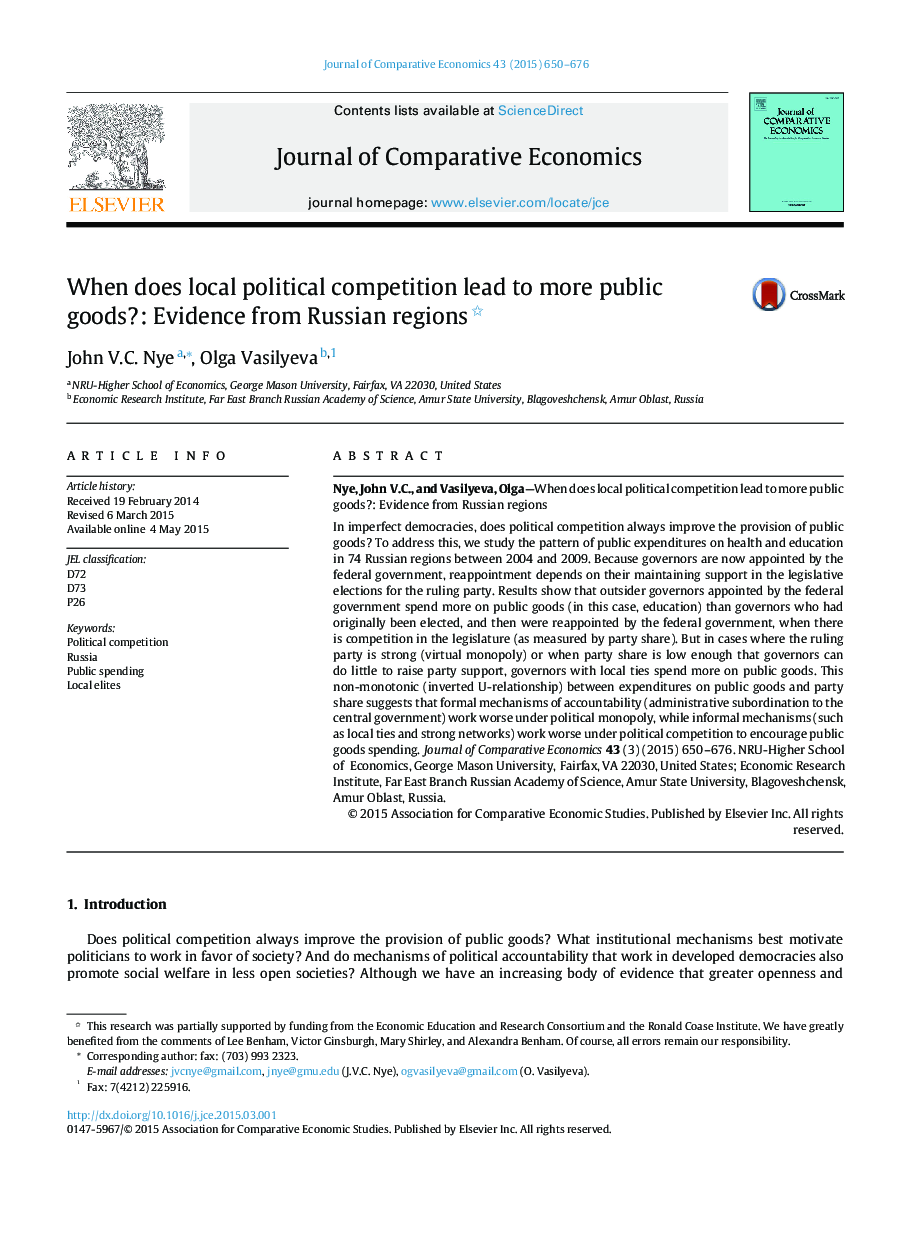| کد مقاله | کد نشریه | سال انتشار | مقاله انگلیسی | نسخه تمام متن |
|---|---|---|---|---|
| 5092068 | 1375912 | 2015 | 27 صفحه PDF | دانلود رایگان |
عنوان انگلیسی مقاله ISI
When does local political competition lead to more public goods?: Evidence from Russian regions
ترجمه فارسی عنوان
هنگامی که رقابت سیاسی محلی منجر به کالاهای عمومی بیشتر می شود: شواهد از مناطق روسیه
دانلود مقاله + سفارش ترجمه
دانلود مقاله ISI انگلیسی
رایگان برای ایرانیان
کلمات کلیدی
موضوعات مرتبط
علوم انسانی و اجتماعی
اقتصاد، اقتصادسنجی و امور مالی
اقتصاد و اقتصادسنجی
چکیده انگلیسی
In imperfect democracies, does political competition always improve the provision of public goods? To address this, we study the pattern of public expenditures on health and education in 74 Russian regions between 2004 and 2009. Because governors are now appointed by the federal government, reappointment depends on their maintaining support in the legislative elections for the ruling party. Results show that outsider governors appointed by the federal government spend more on public goods (in this case, education) than governors who had originally been elected, and then were reappointed by the federal government, when there is competition in the legislature (as measured by party share). But in cases where the ruling party is strong (virtual monopoly) or when party share is low enough that governors can do little to raise party support, governors with local ties spend more on public goods. This non-monotonic (inverted U-relationship) between expenditures on public goods and party share suggests that formal mechanisms of accountability (administrative subordination to the central government) work worse under political monopoly, while informal mechanisms (such as local ties and strong networks) work worse under political competition to encourage public goods spending.
ناشر
Database: Elsevier - ScienceDirect (ساینس دایرکت)
Journal: Journal of Comparative Economics - Volume 43, Issue 3, August 2015, Pages 650-676
Journal: Journal of Comparative Economics - Volume 43, Issue 3, August 2015, Pages 650-676
نویسندگان
John V.C. Nye, Olga Vasilyeva,
